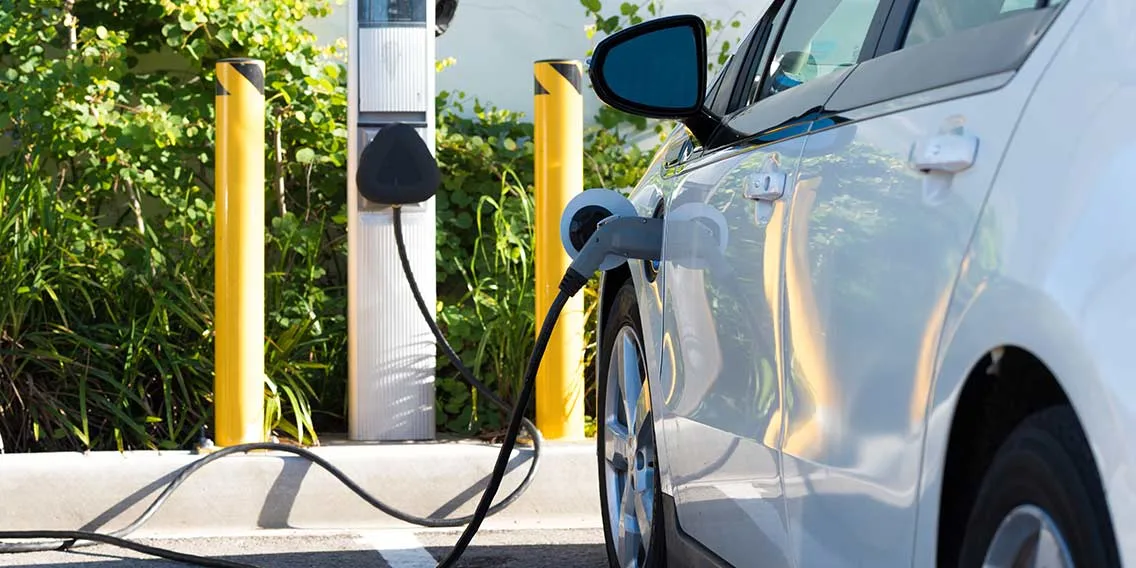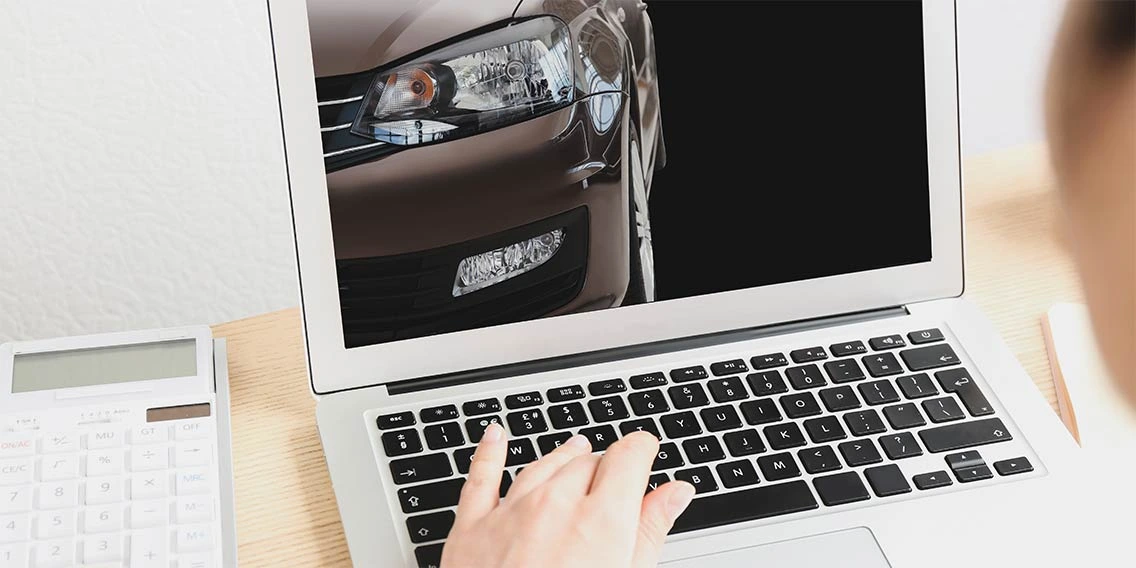AUTO
Should I Buy a New or Used Car?
EXPECTED READ TIME: 11 MINUTES
New car or used car? It’s the most basic of car buying decisions, yet one of the most important. After all, the choice you make can have long-lasting and far-reaching implications.
Cost. Reliability. Safety. Insurability. These factors should factor into whether you purchase a new or used vehicle.
To help with your decision, we’ve put together some information for you to review before you put money down for your next car.
Pros of Buying a New Car
Few experiences are as exhilarating as sliding behind the wheel of a new vehicle and calling it your own. Here are some upsides to being the first titleholder of a car:
- No previous history
- Longer warranty coverage
- Enhanced safety features
- Newer technology
No Previous History
The biggest advantage of buying a new car vs. a used car is its clean slate. With no previous owner, you don't have to worry whether the car was:
- Mistreated or improperly maintained
- Involved in accidents
- Plagued by underlying mechanical or electrical issues
Since a new car has virtually no miles on the odometer, it will be in prime mechanical condition with no wear and tear on any of the major systems or components. Plus, the interior will be pristine.
Longer Warranty Coverage
Most new cars feature a bumper-to-bumper warranty from the manufacturer for at least three years or 36,000 miles. As the name implies, this type of warranty will pay to replace all but a select few parts and systems on the vehicle if issues arise.
Powertrain warranties, which also come with the vehicle, cover the engine, transmission, axles, and other mechanical components. These warranties generally last five years or 60,000 miles but occasionally extend to as long as 10 years or 100,000 miles.
Enhanced Safety Features
Peace of mind is a beautiful thing, especially when it comes to a vehicle. Even base models have better safety features than most older vehicles.
Common safety equipment on newer cars includes:
- Three-point seat belts, which restrain occupants across their lap and shoulder
- Airbags, including side-impact airbags and curtains
- Electronic stability control to help maintain stability if you start to lose control of the vehicle
- Backup cameras to reduce the chances of crashes while in reverse
- Blindspot detection to monitor for vehicles in adjacent lanes
Newer Technology
Cars have come a long way since the days of AM-only radios, window crank handles, and little more than a speedometer and gas gauge on the dashboard. Today's cars typically boast such tech-based features as:
- LCD displays
- Power windows and door locks
- Entertainment and navigation systems
- Multi-zone climate control
- Wi-Fi compatibility
The list of standard and optional amenities for vehicles grows daily. So, if you're a techie or auto fanatic — or both — you can get the best of both worlds in a new vehicle.
Cons of Buying a New Car
There's nothing like the smell of a new car, but that scent will fade long before you finish making payments on a vehicle. Here are some of the disadvantages of buying new:
- Higher purchase price
- Depreciation
- Higher insurance premiums
- Maintenance and repair costs
Higher Purchase Price
When deciding between a new car or a used car, the biggest disadvantage to buying a new vehicle is the price. The average cost of a new car is more than $38,000, and recent challenges created by the pandemic and other supply chain issues are driving prices even higher.
When you buy a vehicle, most states also charge a sales tax based on a percentage of the purchase price. Taxes can add anywhere from a few hundred to several thousand dollars to the final cost, depending on the state where you live.
Depreciation
Regardless of the make or model, every new vehicle loses roughly 9% to 11% of its total value the moment you drive it off the lot. Plus, its value will depreciate approximately 15% to 20% annually over the first five years.
Most experts agree that the average new vehicle will only be worth 40% of its purchase price after 60 months. Any way you look at it, new car ownership — particularly in the early stages — doesn't yield impressive returns in terms of "traditional" investing.
Higher Insurance Premiums
In general, new cars are more expensive to insure than used cars. However, this can vary depending on the make, model, and trim level.
Beyond the straight-up value of the vehicle, insurance companies consider these factors when pricing a policy:
- How likely a car is to be stolen
- The cost to repair if it's damaged
- How safe it is to operate
This means new cars are typically more expensive to insure.
That said, with better safety features and (sometimes) lower costs of repair, it can be cheaper to insure some new cars. Check with your insurance agent before you decide.
Maintenance and Repair Costs
Sooner or later, the warranty on your new vehicle will expire. When it does, you'll be responsible for the full price of maintenance and repairs.
Whether it's replacing tires, repairing safety equipment, or just taking care of general wear and tear, it can be expensive to maintain a new vehicle. Consider it the not-so-hidden cost of all the bells and whistles featured on new cars and trucks.
| Pros of a New Car | Cons of a New Car |
|---|---|
| No previous owner | More expensive |
| Includes multi-year (or mileage-based) manufacturer's warranty | Vehicle value depreciates quickly |
| Newer technology and safety features | Typically costs more to insure |
| More financing options | Maintenance and repairs can be expensive |
Pros of Buying a Used Car
At the end of the day, the primary advantages associated with buying a used car are all tied to money. They include:
- Lower purchase price
- Cheaper insurance rates
- Reduced depreciation
- Lower fees and taxes
Lower Purchase Price
Used cars usually cost less to buy than new cars. Depending on the year, make, model, mileage, and condition, you can save thousands of dollars purchasing a used car or truck.
That said, many popular makes and models retain their resale value well, which can make it difficult to find a good deal on a used vehicle. If you're not going to save a considerable amount of money buying used, a new car may be a better option.
Cheaper Insurance Rates
Insurance rates are determined by a variety of factors, including the vehicle's value. Since a used car generally costs less to repair or replace, insurance rates are typically lower. This can save you thousands of dollars over time.
Reduced Depreciation
If you buy a vehicle that's more than five years old, it's already taken the major depreciation hit that comes in the first few years of new car ownership. The rate of depreciation continues to slow year over year after that, making it easier to recoup much of the investment you have in your car should you choose to sell it in the future.
Lower Fees and Taxes
Similar to insurance premiums, your car's value determines the amount you pay in vehicle registration fees and property taxes. Both are lower with used cars and will continue to decrease annually the longer you own your car.
Cons of Buying a Used Vehicle
In a perfect world, you could quickly find the exact make and model used vehicle you wanted — impeccably maintained, in your favorite color, and at a great price — with very few miles.
Of course, neither the world nor used car buying is perfect. This leads us to some of the disadvantages of purchasing used:
- Previous history
- Less reliability over time
- Less convenient buying process
- Fewer financing options
Previous History
There's always a level of risk involved when buying a used car. Services like Carfax and Autocheck provide vehicle history reports that offer some degree of assurance.
Unfortunately, even the most accurate vehicle history can't paint a full picture of how the previous owner(s) treated and maintained the vehicle. That's a gamble you take when you opt for used.
Less Reliability Over Time
It's a simple fact: vehicles break down over time. So, it stands to reason that the more mileage and wear and tear a car has on it, the closer it is to a trip to the repair shop. Without the benefit of a warranty to help cut the cost, the money you save buying a used car might be sacrificed in reliability.
Less Convenient Buying Process
Buying a used vehicle usually requires more legwork than purchasing new. Rather than simply picking out a model you want in a color you like, you need to do a decent amount of online research before visiting a dealership. This includes:
- Finding out as much as you can about the previous owner(s)
- Scouring history reports
- Determining the vehicle's value
- Comparing prices
- Setting up a test drive
- Arranging an inspection by a mechanic
- Reviewing your credit
- Lining up payment options
Bottom line: You shouldn't rush a vehicle purchase, particularly when you're buying used.
Fewer Financing Options
All things being equal, it's generally more difficult to finance a used car than a new car. The reason? Lenders have a harder time determining the value of a used car.
A vehicle's value plays a huge role in financing because it serves as collateral for the loan. If you were to default on your loan, the lender could seize the vehicle, but then they'd be left with a repossessed car that might be tough to sell in order to recoup their investment.
That's not to say credit unions, banks, online lenders, and many dealerships won't write loans for used car purchases. However, you may pay higher interest rates for a used car than a new car.
| Pros of a Used Car | Cons of a Used Car |
|---|---|
| Less expensive to buy | Previous owner(s) and unknown history |
| Cheaper to insure | Reliability impacted by greater wear and tear |
| Slower depreciation helps retain resale value | Requires more research, particularly vehicle history |
| Lower registration fees and property taxes | Often more difficult to secure financing |
The Certified Pre-Owned Option
Spend any amount of time researching cars and you'll invariably run across models deemed Certified Pre-Owned (CPO). This is an automaker-backed certification assigned to late-model, low-mileage vehicles with clean history reports (i.e., no accidents, liens, or branded titles) that have received multipoint inspections and, if needed, some refurbishing.
Typically, CPO cars are sold by dealerships of the same brand. Other benefits often include:
- Extended warranty coverage
- Discount financing offers
- Roadside assistance
- Additional perks such as buyback protection and satellite radio subscriptions (limited time)
If you're on the fence about buying new or used, a CPO vehicle might be a good compromise. You'll get the peace of mind that comes with a thoroughly inspected automobile that's backed by a warranty from the manufacturer. Plus, CPO cars have already taken the major depreciation hit.
Keep in mind, however, that the advantages of CPO come at a price. Generally, you can expect a CPO vehicle to cost as much as 20% more than a non-CPO vehicle.
New Car vs. Used Car: 3 Factors to Consider
Whether you ultimately opt for a new car or a used car, your journey should begin with some due diligence. Here are three things to think about before you buy.
1. How Much You Can Spend
You need to determine how much to spend on your car. One of the best ways to do this is to use a car loan calculator to understand how much payments would be based on the length of a loan you might obtain, the interest rate, amount you put down on the vehicle, and other factors.
2. The Total Cost of Ownership
The cost of owning a car is far greater than the price printed on the window sticker. Before buying, you should account for what you'll likely pay for insurance, gas, maintenance, fees, and taxes. Also, remember some vehicles — particularly luxury models — are more expensive to own and maintain.
3. Resale Value
If you're looking to recoup most of the cost you spent to purchase the vehicle, a used car is likely your best option. As mentioned above, depreciation affects the resale value of a new car the moment you drive it off the lot. In some cases, you may even be able to sell a used car for almost the same amount you paid after a few years.
Alternatives to Purchasing
Now that you have a better understanding of the advantages and disadvantages of buying new or used, there's one more thing to consider: alternatives to buying. Instead of trying to buy a vehicle outright, you could choose to lease or, perhaps, sign up for a car subscription program.
Vehicle Leasing
Leasing a car allows you to keep and drive that car for a set period (usually 36 to 48 months) without having to buy it. You're typically required to make a down payment, but monthly payments are generally lower than for a loan. When your lease period ends, you have the option of turning in the vehicle or purchasing it at a predetermined amount, which is outlined in the lease contract.
Car Subscriptions
Still relatively new, a car subscription service allows you to “rent” a vehicle on a short-term basis for a monthly fee. A subscription, which is typically offered in increments of one, six, or 12 months, often includes registration, maintenance, roadside assistance, and liability insurance. Generally, you also have the freedom to swap out your vehicle to a different model each month.
Your Next Steps
At the end of the day, buying any vehicle — whether a new car or a used car — is a big financial decision that's influenced by numerous factors, including your lifestyle and personal budget.
If you do your research, spend within your means, and choose wisely, you can enjoy rolling down the highway of life for miles (and years) on end.
Start Your Car Buying Journey
Take a closer look at our new and used loan rates, terms, and features.




